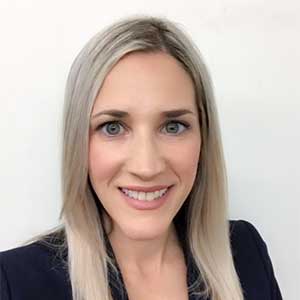If you have a pain in your body, you know to go to the doctor. A toothache? Schedule a visit with the dentist. Worsening vision? Time to see the eye doctor. But what do you do if you think you’re losing your hearing? Unfortunately, most people who experience hearing loss decide to live with it rather than seek treatment by visiting a hearing care professional and getting hearing aids.
Ignoring hearing loss means more than just missing out on conversations—it could also affect your overall health and wellness. Harvey, Danyell, and Robert are three people who experienced the dangers of hearing loss firsthand. Although all three had hearing loss for decades, they chose to ignore it, until it became too much for them.
Maintaining safety at work
Each year, 22 million American workers are exposed to potentially dangerous noise levels on the job. That risk is highest for those in noisy professions like manufacturing, transportation, armed services, emergency response, and similar fields in which you’re around loud machinery. But hearing loss isn’t the only hearing-related danger at work. For jobs in which hearing is essential, employees with difficulty hearing may put themselves, their colleagues, and the public at risk. Whether misunderstanding work directions or not hearing notifications that something is wrong, poor hearing can lead to unsafe situations.

Harvey Patterson understands this dilemma very well. As a machine tool designer and a NASCAR pit mechanic in his spare time, he has spent much of his life around loud machinery, which took a toll on his hearing and introduced new risks to his job. If a machine isn’t working correctly, the sound it makes is often the first sign that something isn’t right, and Harvey found himself struggling to hear those sound-based clues. After realizing the potential dangers of his untreated hearing loss at work, in addition to struggling to hear conversations with his loved ones, Harvey took action and got hearing aids—and convinced several of his coworkers to do so as well.
When one “good” ear isn’t enough
People with unilateral or single-sided hearing loss might think that because they can still hear out of one ear, they don’t need to address it. But humans are meant to hear binaurally, picking up sound from both ears. Despite hearing out of one “good” ear, such individuals can still experience a diminished sense of balance and reduced spatial awareness. This can lead to an increased risk of dangerous falls and difficulty hearing potential danger like an approaching car when crossing the street.
Additionally, people with a single-sided hearing loss might experience pain and discomfort. Since they need to constantly reposition themselves or turn their head to make sure their good ear faces a speaker, they risk developing chronic neck and back pain or headaches.
Danyell Schendel went most of her life without hearing out of her right ear, and she has described her condition as “having a shadow” on her right side. Recognizing her single-sided hearing loss was no longer something she could shrug off, Danyell got contralateral routing of signals (CROS) hearing aids. This advanced system picks up sounds coming toward her bad ear and transfers them to the hearing device in her good ear. The CROS solution has lifted the shadow she dealt with most of her life and helps protect her from the health and safety risks of untreated single-sided hearing loss.
Mental health
Your ears and hearing play a crucial role in maintaining your mental health. Hearing loss makes keeping up with conversations at restaurants or other social events draining, so you might find it easier to limit socializing or avoid visiting people as a result. Over time, this self-imposed social isolation, as well as the simple fact of not hearing like you used to can lead to depression. Additionally, research shows that, compared to people with normal hearing, individuals with hearing loss show an increased risk of cognitive decline and are more likely to develop Alzheimer’s disease or other forms of dementia.
While Robert Seidler’s passion has long been riding his bike through the backroads of northern Florida, his hearing loss made it difficult to enjoy this hobby. Since he preferred to conduct business meetings and bond with his family and friends while biking, doing so became difficult, and he struggled to hear conversations off the bike as well. Robert’s loved ones noticed that his difficulty hearing led to moments of sadness and depression.
When Robert finally decided to act on his hearing loss and get fitted with hearing aids, his life was transformed. He could once again follow conversations and enjoy all the sounds of nature when riding his bike. He summed up his renewed sense of hearing as “pretty magical.”
Choosing to address hearing loss
The effects of hearing loss extend far beyond missing conversations in background noises and can affect your overall health and mental wellness. But the sooner you seek treatment for your hearing loss, the better your chances of mitigating the associated health risks. Harvey, Danyell, and Robert each recognized how hearing loss diminished their quality of life, and affected their health, then made the decision to address their hearing loss. You too can make the right choice.
If you like what you see, share it so others can benefit
Posted by Lauren

Lauren Dickstein Au.D.
Dr. Lauren Dickstein is a Clinical Educational Specialist for Sivantos, Inc. She trains customers on products, software, and services. She has 16 years of experience working in audiology clinics, including ENT and hospital settings. Prior to joining Sivantos, she supervised the outpatient audiology clinic and the newborn hearing screening program for Sibley Memorial Hospital in Washington, D.C. for seven years. Lauren received both her undergraduate and graduate degrees from the University of Maryland, College Park, and her doctorate degree from A.T. Still University’s Arizona School of Health Sciences
Looking For the Latest Hearing Aids or A Hearing Test?
Arrange a consultation with a trusted Independent hearing healthcare professional in your area



